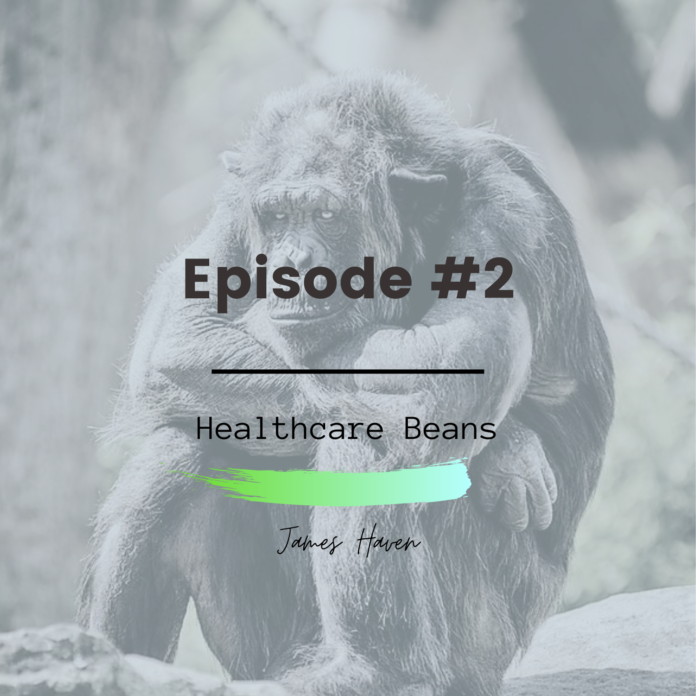Podcast: Play in new window | Download (Duration: 9:34 — 9.6MB) | Embed
Subscribe to the Healthcare Beans Podcast: Apple Podcasts | Spotify | RSS | Subscribe via..
Episode #2 of the Healthcare Beans podcast
Keeping your annual wellness visit is a great way to safeguard your future health!
In this episode, I talk about the importance of the annual wellness visit, and how health systems use data to prioritize patient outreach.
Check out my earlier post on this topic (if you prefer to read instead of listening to a podcast).
~ James
Transcript
Hello everyone and welcome to the Healthcare Beans podcast, I’m your host James Haven, and today I want to talk about annual wellness visits, and in particular, should we (and by “we” I mean patients) care about these types of medical appointments.
At the outset, talking about annual wellness visits may seem a bit unimportant or even a little boring, but it’s actually kind of surprising what’s goes on behind the scenes with annual wellness visits and by the end of this episode I hope I can convince you to take them seriously.
And for additional context, the annual wellness visit is a pretty important element for implementing value-based healthcare, which I talk about in episode #1 of this podcast. And I will circle back to this topic later in the episode…
As always, the best way to think and talk about healthcare is through the patient experience. So I’m going to share a patient story that I came across a few years back.
Several years ago, while interviewing for an analytics job in healthcare, someone showed me a graph of a single patient’s movement across 10 different hospitals and rehab sites, across a span of 8 months. Now, there’s a particular name for this type of patient, sometimes referred to as a ‘super-utilizer’, but some folks find this term a bit offensive, not really sure why though it might remind people of the term ‘super-predator’ from the 90s which coincided with tough crime laws and really high incarceration rates among black men.
Anyway, the new term is “high-cost, high-need” patients, and this term describes people who end up costing health insurance companies a small fortune in a short time span (3 to 6 months, or 1 year). So going back to that interview, a health system VP shared some graphs with me and asked me what I thought of the data? So as I studied the patterns of movement between facilities, the key thing that jumped out at me was that this patient (we’ll just call him Harry) never went home!
He bounced around the healthcare system for 8 months, wound up costing Medicare half a million dollars, and then he died. Harry’s entire problem began with a poorly managed chronic disease. He went to the emergency department one day, and that was it, he never escaped the health system.
And this is where good preventative care comes in, this where annual wellness visits become important – we want our doctors to spot our health problems long before we spot them ourselves, and certainly before we require emergency care.
To be clear, the wellness visit is an annual touch base with your doctor, that includes a routine check-up, blood test, a vitals check, and a LOT of information gathering. A key thing about annual wellness visits are that these visits are often initiated by your doctor. Someone from your doctor’s office calls you, and wants to set up an appointment. So this is not the usual type of dr visit, where I feel like something is wrong in my body, and I reach out to my doctor to schedule an appointment (this is the other way around).
Now I was talking to a health policy colleague a while back and he did not really understand the significance of wellness visits (or much of primary care in general) and whether these visits were actually effective at keeping people healthy. He didn’t have much faith in a doctors’ ability to spot problems early on, but I would argue otherwise. It’s not just the doctor’s training, or skill or intuition, that’s involved in “problem-spotting”; it’s the data that’s gradually collected on patients over time. And the annual wellness visit is a great data collection opportunity. But it can also be a key intervention point. I’ll explain…
Let me back up and describe how value-based healthcare gets done on a daily basis inside a health system (point to episode #1 and elaborate on VBC). Recall that value-based care is a relatively new way to deliver healthcare to patients, and it’s based on tying provider payments (doctors & health systems) to your health outcomes. In a very rough sense, if you stay healthy, then your doctor, your health system, makes more money.
In practice, a health system takes a hard look at their patient population and identifies a target disease group(s) based usually on quality measures (walk through analysis example). Maybe they’re losing money through poorly-managed diabetes, or CHF/COPD, or chronic kidney disease.
The health system will analyze lots of data, and eventually come up with an outreach list – this is a group of priority patients with high risk for significant medical service needs in the coming year. Remember, under value-based care the health system loses money on high-utilizing patients, and that’s why they focus their efforts on a target disease group.
Now, if you’re in that group, you may receive a call out of the blue asking to come in for a wellness check. To be clear, not all wellness checks mean you have a serious problem; many are simply about gathering information. But it’s important to understand that in a fee-for-service world, doctors can call healthy people in for a wellness check, and it’s no bother, the doctors and health systems still get paid. But under value-based healthcare, doctors & health systems will prioritize their outreach to high risk individuals, and since more and more health systems are switching to value-based care, we need to start taking that outreach seriously.
So the key takeaway here is “don’t ignore outreach for a wellness visit”. It may seem like something you can delay or blow off, but there could be a lot of data behind that simple phone call. You should really think of it as personalized outreach.
Well, that’s it for today. Please leave your comments for the Healthcare Beans podcast, or more specifically about this episode, it’s the only way for me to understand what resonates with listeners and how to adapt the content, accordingly. You can also visit my website at www.healthcarebeans.com to check out my content on value based healthcare and a bunch of other health-related topics. So thanks again for listening! I’m your host, James Haven. God bless.





